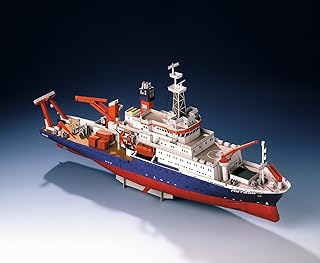The UK is taking the lead in polar climate change research as the US reduces its scientific presence in the region. The UK’s state-of-the-art polar research vessel, RRS Sir David Attenborough, is set to embark on a mission to Antarctica to support numerous climate change-related science projects. Operated by the British Antarctic Survey (BAS), the icebreaker will facilitate research on various aspects, from tracking glacier melt to studying whale populations.
BAS oceanographer Peter Davis highlighted the significance of Antarctica’s impact on global climate and expressed disappointment in the US scaling back its scientific activities in the region. However, he noted that other countries, including the UK, are stepping up their efforts to fill the void left by the US. Davis is collaborating with the Korean Polar Research Institute to study the Thwaites Glacier’s contribution to rising sea levels.
US President Donald Trump’s skepticism towards climate change has led to a withdrawal from the Paris climate accord and a reduction in scientific initiatives. This shift has created opportunities for countries like the UK to enhance their polar research efforts. Stephanie Martin, involved in a project assessing whale populations, emphasized the need for continued scientific exploration in the face of US cutbacks.
The RRS Sir David Attenborough, a symbol of the UK’s commitment to polar research, represents a significant investment in advancing climate change studies. Equipped with cutting-edge facilities, the vessel will support research at the Rothera Research Station and other BAS facilities in Antarctica. The ship’s capabilities, including icebreaking and advanced research equipment, enable scientists to conduct in-depth studies in challenging environments.
Efforts such as the Wild Water Whales initiative, led by Martin, aim to study and monitor whale populations for conservation purposes. Despite past threats to whale populations, there are signs of recovery, underscoring the importance of ongoing research to protect these species. Climate change impacts on marine ecosystems, such as threats to krill populations, further highlight the need for comprehensive scientific studies.
As the UK intensifies its focus on polar climate change research, the country’s collaboration with international partners remains crucial. The UK’s strategic investments in research infrastructure, exemplified by the RRS Sir David Attenborough, demonstrate a commitment to understanding and mitigating the effects of climate change. By leveraging scientific expertise and cutting-edge technology, the UK aims to contribute significantly to global efforts in addressing climate change challenges.
📰 Related Articles
- London Stock Exchange Leads UK Markets Amid Economic Shifts
- Wildfire Rages in West Lothian: Firefighters Struggle Amid Climate Crisis
- US to Revoke Chinese Student Visas Amid National Security Concerns
- US and Europe Solar Trends Diverge Amid Industry Shifts
- US and Europe Drive Battery Manufacturing Surge Amid Energy Transition




